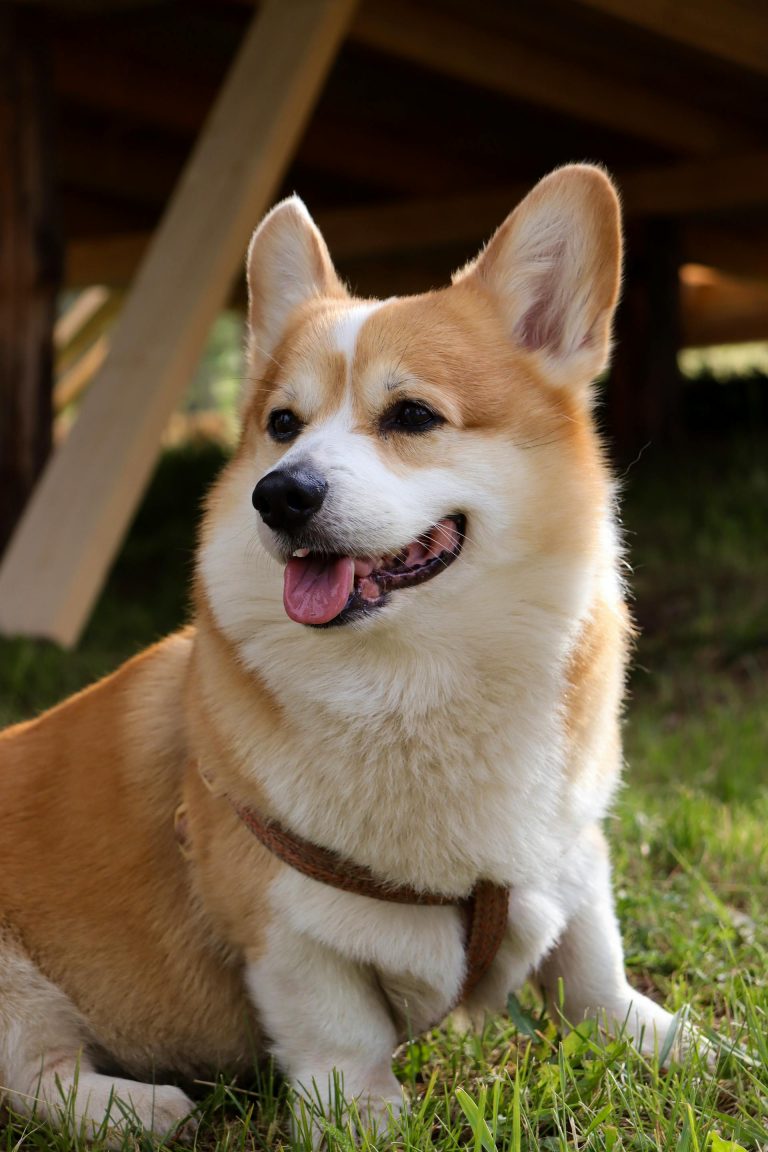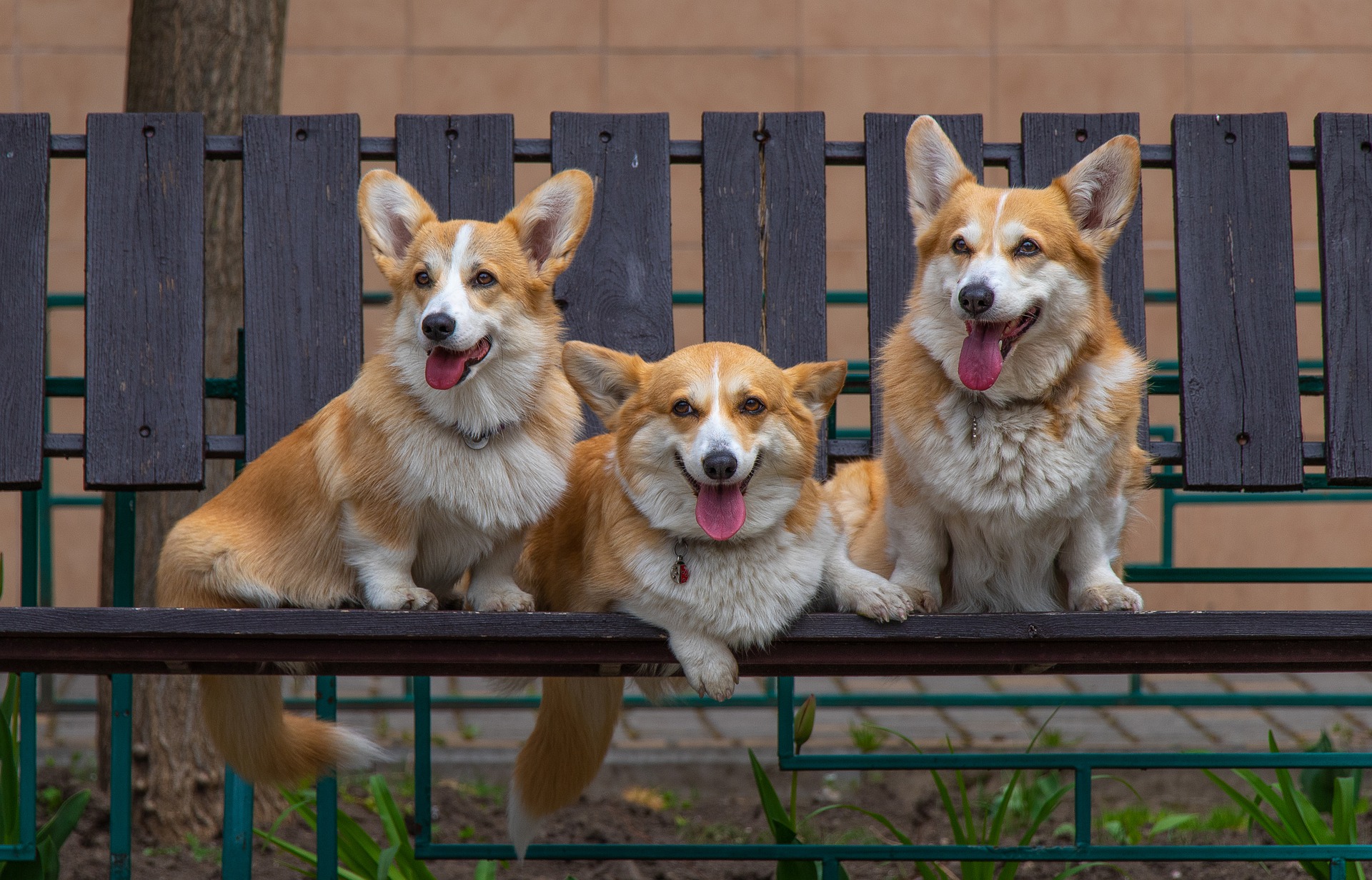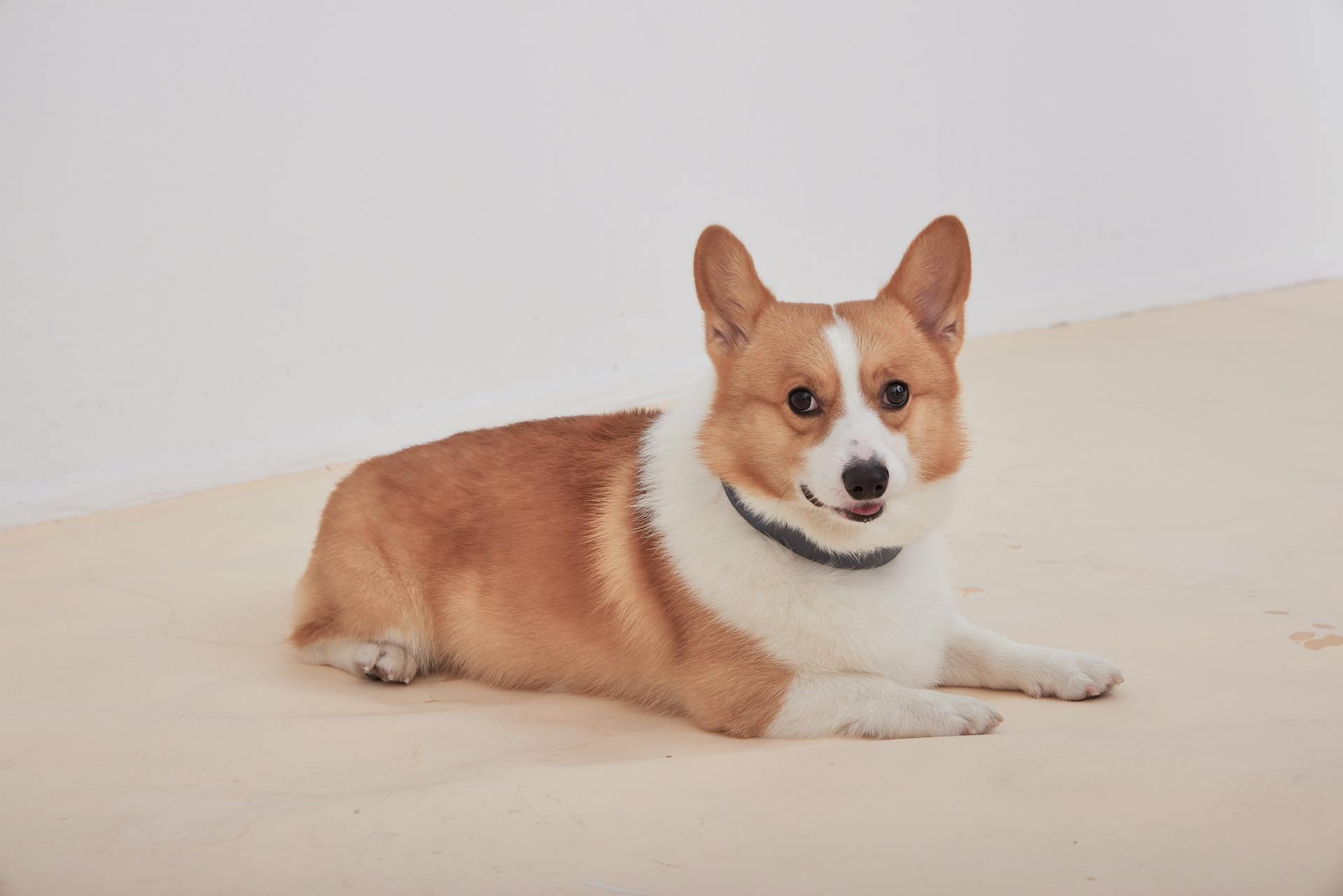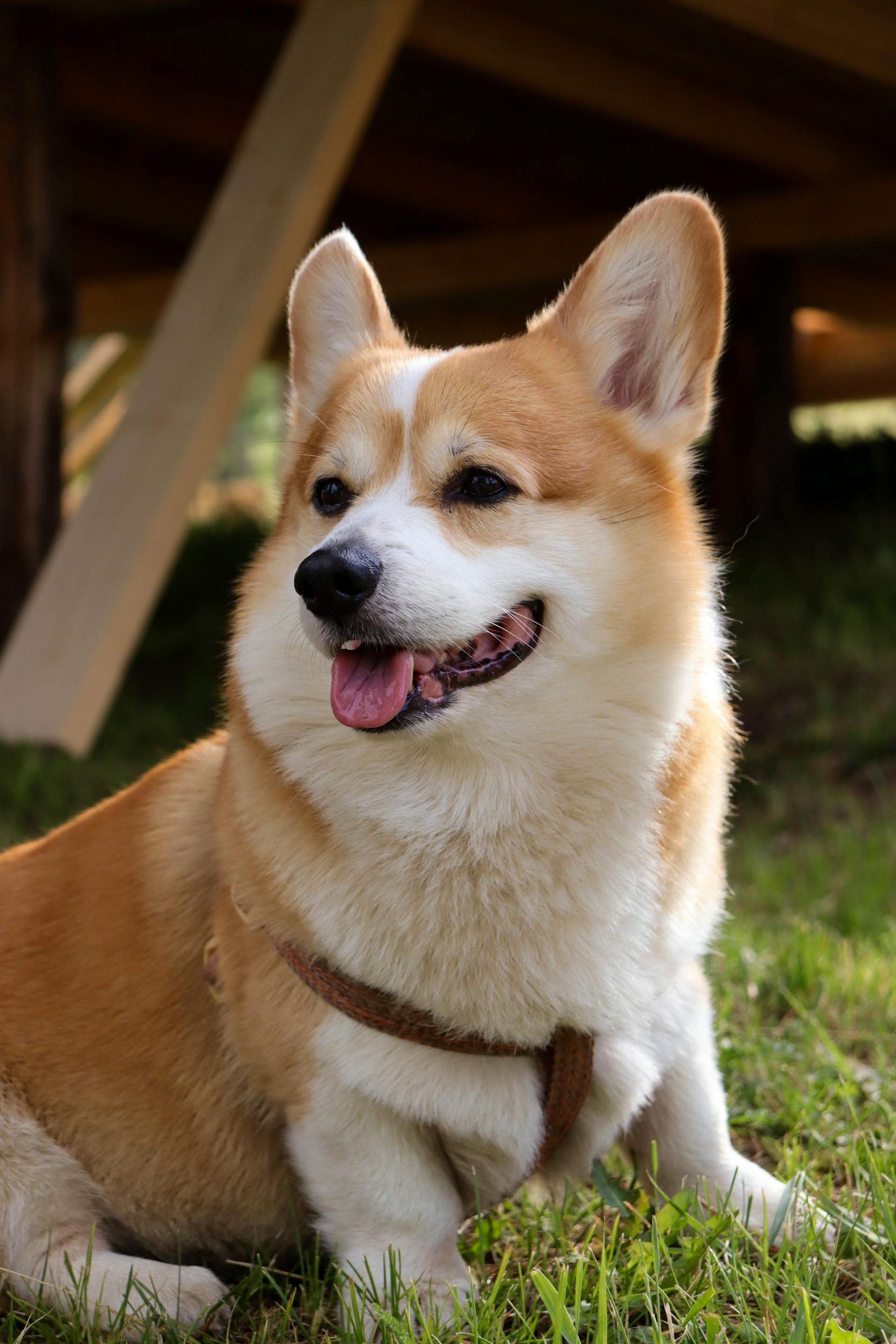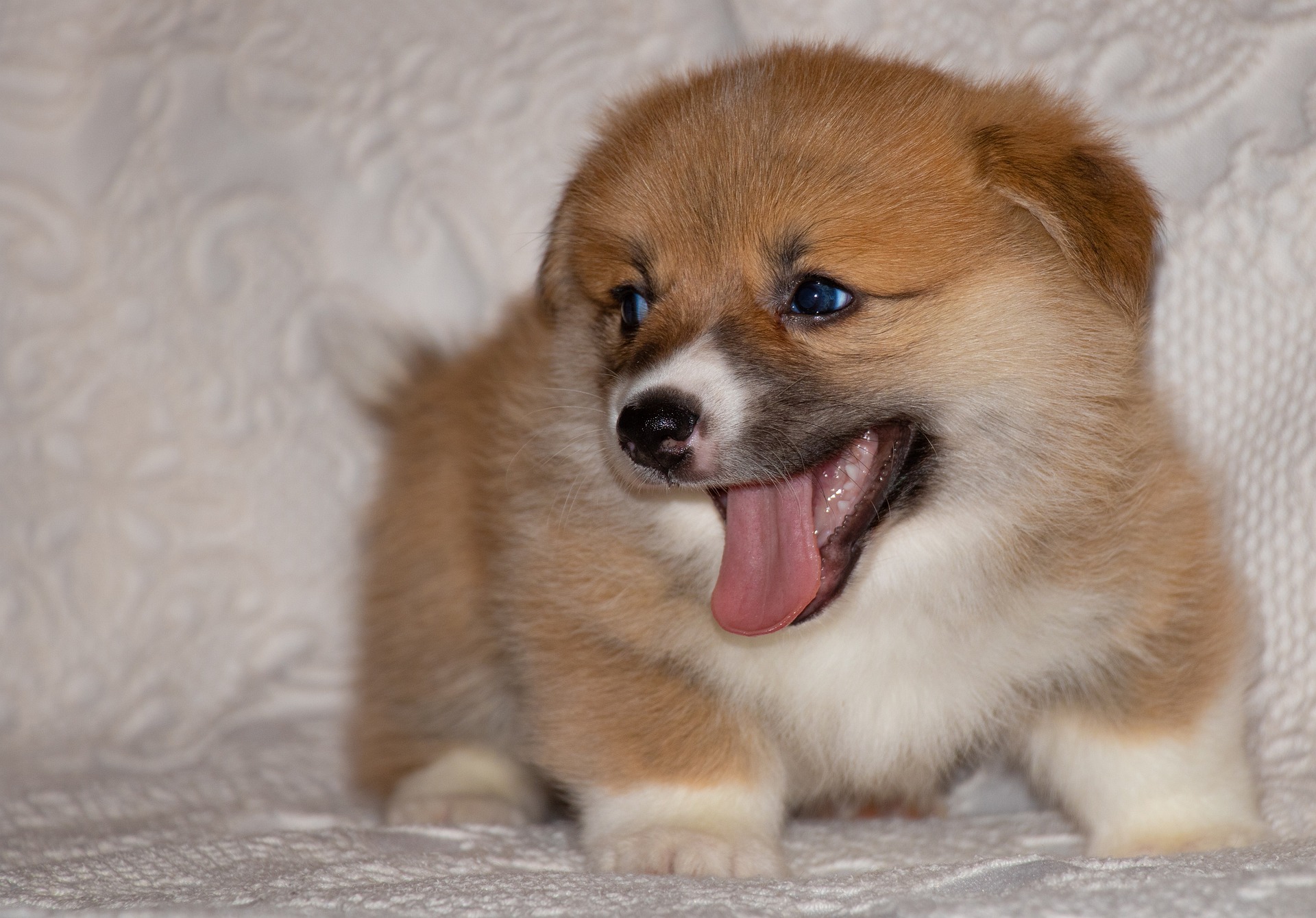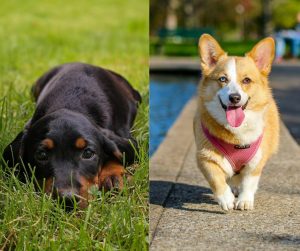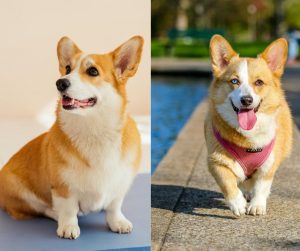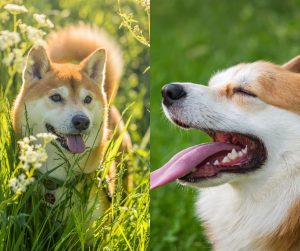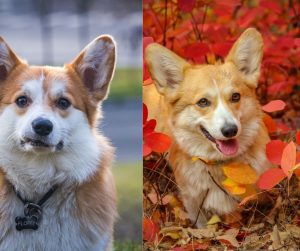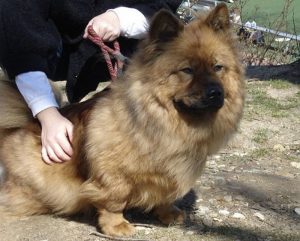Have you came across the term fluffy corgi? I can tell you for sure, even if you haven’t, you will be obsessed with it after reading this article. Corgis are some of the most unique dogs in the canine world. We often call them the Kim Kardashian of the dogs world because of their amazing butt.
Queen Elizabeth II popularized Corgis more than any other dog breeder. And while Queen Elizabeth had a Pembroke Welsh Corgi and Cardigan Welsh Corgi, fluffy corgis are something else.
This variation of the traditional Corgi breed is somewhat of a mix between a Pembroke Welsh Corgi and Cardigan Welsh Corgi. How are they different? Well, their distinctive feature is a lush, long coat that is even fluffier than traditional Corgi coat. Due to a recessive gene mutation, these small dogs have soft, fluffy appearance, looking fluffier.
Yet, at the same time, the fluffy coat presents a grooming challenge. Prospective pet parents and dog owners should take the good with the bad. You get a dog that has higher aesthetic allure. Yet, you need to put even more effort into grooming.
These dogs have retained the classic Corgi build, which includes the sturdy body, short legs, and alert expression with bat-like ears.
Key Takeaways
- Fluffy corgis are a desired corgi variation with recessive gene that causes long and soft coat
- Fluffy corgis present more grooming challenges
- They have retained the classic Corgi build and features
Breed Overview
Fluffy Corgis are the soft, more huggable versions of the well-loved Welsh Corgis. Their long coats and gentle temperament make them irresistible companions. Now, let’s get cozy with the facts on these cuddly canines.
Distinctive Traits
These lovely puppies sport a luxurious long double coat that sets them apart from their short-coated relatives. Regardless of being Pembrokes or Cardigans, Fluffy Corgis have the same sturdy build and endearing fox-like facial features. While the American Kennel Club (AKC) may not recognize the longer coat for show purposes, it does not diminish their popularity as family pets.
Here are their general physical characteristics:
- Height: 10.5-12.5 inches at the withers
- Weight: Pembrokes typically range from 28-30 pounds, Cardigans are usually a bit heavier
- Coats come in various colors including red, sable, fawn, black and tan
The fluffiness is due to a recessive gene. Future pet parents should know, the recessive gene has nothing to do with a higher risk of health issues and concerns. But it does require a bit more grooming to keep the fluff look shiny and prevent matting.
History and Origin
The roots of both Pembroke and Cardigan Welsh Corgis are deep-seated in Welsh culture, where they were originally bred for herding livestock. Some legends on the island go as far as saying that they were preferred steeds of fairy warriors. But let’s put those legends aside, and talk about the Pembroke Welsh Corgi dog bred.
The American Kennel Club recognized both Pembrokes and Cardigans in the United States in the 1930s. Yet, the fluffy gene was considered a departure from the breed standard. Therefore, the Fluffy Corgi was not acknowledged by the AKC for competition in conformation shows. Despite this, they’ve found a special place in the hearts of dog lovers around the globe for their personality and distinctive appearance.
Physical Characteristics
The Fluffy Corgi is known for its distinctive, plush coat that invites a good cuddle. But there’s more to these adorable dogs than just their soft, inviting fur—let’s take a closer look.
Coat Varieties
The Fluffy Corgi sports a double coat that consists of a dense undercoat and a longer overcoat. This combination gives them a lush, thick appearance that’s not only charming but also practical, offering insulation in various climates.
They come in a lovely palette of colors, ranging from tri-color and brindle to sable and blue merle. The long, flowing hair particularly stands out on the chest, ears, and the hindquarters, differentiating Fluffy Corgis from their counterparts with standard coat lengths.
Size and Structure
These small yet sturdy dogs carry their fluff with pride. Both male and female Fluffy Corgis typically measure between 10.5 and 12.5 inches at the shoulder (the withers) and feature a solid, athletic build.
Males weigh in at around 30 to 38 pounds, while females are slightly lighter at 25 to 34 pounds. Regardless of their gender, their weight should be proportionate to their height.
They’re easily recognized by their tail—often docked in Pembroke Corgis, while Cardigan Corgis sport a fuller tail, adding to their fluffy silhouette.
Grooming and Care
Proper grooming keeps a fluffy Corgi looking dapper and feeling great. It’s all about routine care, from brushing to ward off mats to checking for health issues that can hide beneath that beautiful coat.
Grooming Essentials
Brushing a fluffy Corgi’s coat is foundational to their grooming routine.
At least three times a week, owners should use a slicker brush to gently work through the fur, paying special attention to potential matting areas.
To tackle the undercoat and reduce shedding, a tool like the Furminator can be used judiciously to avoid over-thinning the coat. A greyhound comb can help in smoothing out the topcoat and providing a finished look.
Shampooing doesn’t need to be done too frequently—only when the dog gets particularly dirty or starts to smell.
When it is time for a bath, using a dog-specific shampoo and conditioner can help keep their coat clean, hydrated, and less prone to tangles.
- Brush your dog at least three times per week with a slicker brush
- Use proper shampoo and condition for lush hair
- Once per week or every two weeks, use a furminator brush to manage undercoat shedding
- Use a greyhound comb to smooth out coat after brushing
Health Considerations
A fluffy Corgi’s adorable exterior can hide underlying health concerns. Owners should not just focus on the fluff, but rather incorporate a full-body checkup into grooming sessions to identify any potential issues early.
During the grooming process, it is a good time to feel for any abnormal lumps, bumps, or signs of skin conditions.
Fluffy Corgis, like their breed counterparts, can be prone to hip dysplasia and degenerative myelopathy.
Regular vet check-ups are crucial for early detection and management of these conditions. While grooming, paying attention to how the Corgi moves and reacts can also provide early clues to any joint or spine issues.
- Inspect the body for lumps, bumps, or any skin issues
- Watch out for signs of discomfort or difficulty moving, early symptoms of hip dysplasia
- Make sure to take your dog to the vet for checkups
Personality and Temperament
When one thinks of a fluffy Corgi, the image that often comes to mind is a friendly and lively companion. These dogs are highly sociable and possess a temperament that makes them well-suited for family life.
Behavioral Traits
Fluffy Corgis are known for their intelligent nature, often displaying a level of understanding that makes training a joy.
They are loyal to their owners, forming strong bonds and offering steadfast companionship. This loyalty combined with their intelligence means they can be both a delight and a challenge to train — they understand quickly, but may have their own ideas about following commands.
Their friendly demeanor extends to both humans and other animals, which is why they are frequently described as social butterflies of the dog world.
Fluffy Corgis generally get along well with everyone, including children and other household pets, but they also benefit from early socialization to build those positive traits.
When it comes to energy levels, Fluffy Corgis are spirited and require regular exercise to maintain health and happiness.
Despite their short legs, they have an impressive amount of stamina and will appreciate activities that challenge them both physically and mentally.
The personality of a Fluffy Corgi is characterized by a cheery disposition and an affectionate nature.
They thrive on attention and are happiest when they’re a part of family activities. Their capacity for affection is immense, making them excellent family pets who will offer cuddles as readily as they do companionship.
Owners should be mindful of the Fluffy Corgi’s need for interaction — these dogs don’t like being left alone for extended periods and can become anxious without regular engagement with their human family.
Choosing Your Fluffy Corgi
When one decides to bring a fluffy corgi into their life, selecting the right breeder or considering adoption are crucial steps. They ensure the health and happiness of the dog as well as a good fit for the family.
Finding a Breeder
When looking for a breeder for a fluffy corgi, emphasize finding someone who is both reputable and dedicated to the health and well-being of their dogs.
Reputable breeders will provide clear information about the genetic lines of their dogs, health clearances, and allow you to visit and see the conditions in which the puppies and parent dogs are raised.
The cost can vary widely, but prospective owners should be prepared that breeders of fluffy corgis may charge a premium due to their desirable, plush coats.
Breeders should be transparent about:
- Health screenings and vaccinations
- The puppy’s lineage and breed-specific information
- The conditions in which the puppies are raised
- Socialization practices
Adoption
Adoption presents an opportunity to offer a home to a fluffy corgi in need.
When choosing to adopt, one should check local shelters and search for rescue groups that specialize in corgis.
Although it might be a bit more challenging to find a fluffy variant, the price of adoption is generally lower than purchasing from a breeder, and it includes the satisfaction of providing a second chance to a loving companion.
Key information to ask during the adoption process:
- The dog’s background and health history
- Behavioral assessment
- Any known likes, dislikes or quirks
Caring for Your Fluffy Corgi
When it comes to looking after a fluffy Corgi, it’s all about keeping them healthy and happy through proper nutrition and just the right amount of exercise.
They’ve got energy to burn, but they’re also prone to certain health issues, so balance is key.
Diet and Nutrition
Proper diet is essential for a fluffy Corgi’s health.
The food they eat should be rich in nutrients to match their energy levels, but mindful of their predisposition for weight gain which can exacerbate health problems like hip dysplasia.
- Puppy (Up to 1 year): Feed your Corgi puppy a diet that supports rapid growth. It is best that you feed puppies three to four times per day
- Adult (1-7 years): As your dog matures, switch to an adult formula. Make sure the formula contains sufficient amount of protein, fat, and carbs. Feed your dog two times per day
- Senior (8+ years): Senior dogs need fewer calories, yet, the same amount of nutrients. Adjust the portion size, and feed two meals per day
Always provide fresh water and consult with a vet if you’re considering a diet change, particularly if your Corgi has specific health needs.
Exercise Requirements
Fluffy Corgis are energetic and require daily exercise to maintain a healthy weight and keep their minds active. Their herding instincts make them love a good chase, so interactive playtime is great. But, overexertion can lead to joint issues.
- Daily Walks: Take your dog out two times per day, trying to get between 30 and 60 minutes of physical activity
- Playtime: Schedule frequent, short play sessions during the day to burn off some of that Corgi energy
- Mental Stimulation: Activities that challenge them mentally, like puzzle toys, are just as important for their well-being
The lifespan of a fluffy Corgi typically ranges from 12 to 15 years. Maintaining an ideal diet and exercise routine greatly contributes to reaching those golden years in good health. Every Corgi is an individual, so adjust their activity according to their energy level and health status.
Regular check-ins with a vet will ensure your Corgi’s diet and exercise needs are being met as they grow from a playful puppy into a dignified senior dog.

